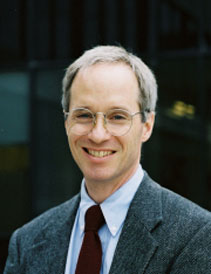非常抱歉,
你要访问的页面不存在,
非常抱歉,
你要访问的页面不存在,
非常抱歉,
你要访问的页面不存在,
验证码:

职称: Professor
所属学校:Cornell University
所属院系:College of Engineering
所属专业:Engineering Physics/Applied Physics
联系方式:607 255-9006
After receiving his doctoral degree, Brock spent two years as a postdoctoral research associate at the Massachusetts Institute of Technology and then joined the Cornell faculty in 1989. He served as Director of the School of Applied & Engineering Physics from 2000-2007. At Cornell, he is affiliated with the Cornell Center for Materials Research (CCMR), the Energy Materials Center at Cornell (emc2), and is Director of the Cornell High Energy Synchrotron Source (CHESS). He is a member of the American Crystallography Association, the Materials Research Society, the American Association for the Advancement of Science, the American Society of Engineering Education, Sigma Xi, the Union of Concerned Scientists, and The Materials Society. Brock is a fellow of the American Physical Society.
For over 100 years, our fundamental understanding of the structure of materials on atomic length scales has been advanced by direct structural measurements using x-rays. Modern synchrotrons provide over 8 orders of magnitude higher fluxes than laboratory based sources. This flux enables us to utilize higher resolution: higher angular resolution for diffraction, higher energy resolution for spectroscopies, higher time resolution for dynamics, and higher spatial resolution for imaging. We employ modern synchrotron-based x-ray techniques to measure the structure directly on length-scales ranging from 1 - 50,000Å on time scales ranging from 10-6 - 103 seconds. We are currently concentrating our studies on pulsed laser deposition (PLD) of complex oxide thin films. The desire to manufacture devices with characteristic features on (sub)nanometer length scales has driven an enormous effort to create thin films with precisely controlled chemical composition, crystal structure and morphology. Energetic processing techniques offer the enticing prospect of gaining additional control at the nanoscale over thin-film deposition and processing. However, our fundamental understanding of non-thermal growth and surface processing is in an early stage of development. We are studying the fundamental processes governing deposition via Pulsed Laser Deposition (PLD). Empirically, by tuning the substrate temperature, background gas pressure, laser pulse rate, and energy density of the laser pulse, high quality films of many cubic perovskite (e.g., colossal magnetoresistance (CMR), piezoelectric, and high TC superconducting materials) can be grown using PLD. Our time-resolved x-ray structural measurements directly test proposed growth models. This research program is a component of the CCMR's IRG-3 and is based at CHESS.